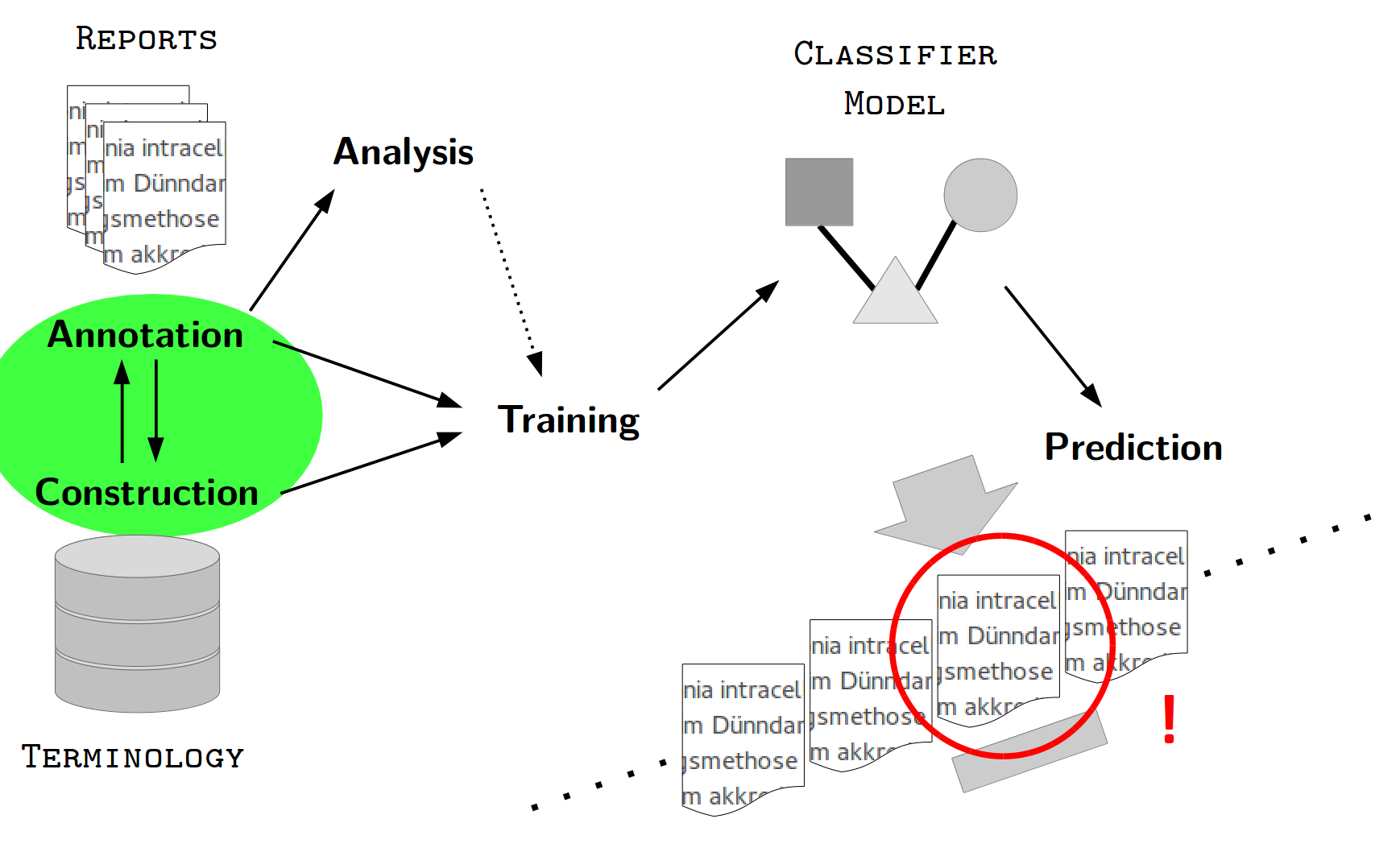Navigation auf uzh.ch
Navigation auf uzh.ch
In a collaboration with the Vetsuisse Faculty of the University of Bern, we applied text mining techniques to post-mortem reports of farm animals (cattle and pigs), striving towards early detection of spreading diseases.

As recognized in the Swiss Animal Health Strategy 2010+, methods for early detection, based on the increasing abundance of data on animal health stored in national databases, can contribute to valuable and highly efficient surveillance activities. Post-mortem data, available from pathology services, are often under-exploited although they provide valuable information on the causes of death and additional health indicators for various animal species. In addition to their value for veterinarians and farmers (with regard to treatment and prevention options for the affected herd), systematic evaluation of post-mortem data could be of great value for nation-wide and international animal health and zoonotic disease early warning systems.
Principal investigators:
Researchers:
Advisor:
The project was funded by the Swiss Federal Food Safety and Veterinary Office and ran from 2014 to 2016.
The academic pathology institutes of the Vetsuisse Faculty currently provide most of the veterinary pathology service offered to the food production sector in Switzerland. The overall goal of this project was to make post-mortem data, recorded at a veterinary pathology institute, readily available for epidemiological surveillance and the early detection of emerging animal diseases. In particular, this project focused on the development and evaluation of an automated text-mining and syndrome-classifying tool to 1) extract relevant information from pathology reports (written in free text) with minimal expert intervention; 2) classify pathology findings into syndromic groups to enhance the efficiency of health event detection.